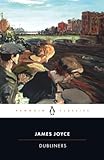Chris Power’s debut short story collection, Mothers, is not a collection of stories about mothers. At least, not at first blush. Only three of the 10 stories in Power’s collection are anchored clearly—and even then tenuously—in a mother-child relationship: “Mother 1: Summer 1976,” “Mother 2: Innsbruck” and “Mother 3: Eva.” Using a variety of narrators, the three pieces track the life of Eva—a troubled, helplessly itinerant woman who was tragically mothered and who becomes, inevitably, a tragic mother herself. Eva’s impulses are protean. Her global travels both shield her and empty her, the drama of her life waxes and wanes. Her life’s end is a picture of despondency: There are no histrionics, no wild paroxysms—everything is simply bleak.
The three stories that follow Eva’s life—dispersed through Power’s collection as the first, middle, and final story—capture the thematic nexus that hovers under Power’s collection. The trio gets at the elusiveness that travels stubbornly—achingly—along with intimacy. In Power’s stories, as in life, a sense of estrangement begets (the pursuit of) freedom, begets longing, begets loving, begets estrangement… and so on. The strategic placement and probing nature of the pieces on Eva make them the support beams around which Power’s remaining stories take shape.
This is not to say, though, that the remaining seven pieces don’t stand alone. Power, whose column “A brief survey of the short story” has been a hit at The Guardian since 2007, wrote on James Joyce’s Dubliners that each story in the Irishman’s collection “functions perfectly well in isolation.” Power, too, has this writerly strength. His stories each have their own distinct ambiance, their own precise codes. You have the hollow sensuality and the teetering-on-the-cusp-of-breakdown tension in “Above the Wedding”—where Liam watches the man he desperately lusts after marry a woman he reluctantly respects. You have the complex ambivalence of “The Crossing,” where two strangers, after forging a partnership, deal with their profound misalignment; and then there’s the subtle crescendo of tension that blooms into brutal abandonment in “Run.”
You also have pure fun. Power is funny. He puts forth absurdity in the way you’d expect of a more modern (and better socialized) narrator of Beckett’s. The father of two daughters in “The Colossus of Rhodes,” for instance, remembers visiting the island of Cephalonia as a child. The island is impeccable, once the site of an ancient Greek wonder. He’d have written about his visit but his experiences don’t really merit the chore: “Boy gets felt up, sees kitten being kicked to death, then rips penis up in zip? What’s anyone meant to do with a story like that?” At least we as readers are comforted that he still has a bit of evidence in “the scar on [his] penis” which is, evocatively, “a line of raised, caramel-coloured skin as thin as a credit card”—I imagine the long side of a golden Visa, straight down the shaft.
In Mothers there is death—I mean arbitrary, misplaced-foot causing death—but there is also rebirth. In one story we witness a cocaine-induced epiphanic moment, where a struggling comic abandons his crutch act of “impersonating” Johnny Kingdom. He pulls over to the side of the road, tosses his Johnny Kingdom wig, jacket and shoes into the black field, and wipes his mouth with a hank of grass torn from the warm earth. We believe his real career, his real life, will start now. We see birth literally, too: When Eva dies at Mothers’s conclusion, her daughter is several months pregnant. Even in these emotionally wrenching scenes, Power is careful not to over-sentimentalize. Not once does he break the delicate combination of breezy and desperate that constitutes the tenor in much of his work.
One question persists: If Power’s Mothers is mostly populated by a variety of fathers, gay men, and single and searching women—why, then, call the collection Mothers? Joyce’s Dubliners, for instance, is strictly about Dubliners, and Power points this out in his column. But Power also points out that while Joyce’s stories can function independently of one another, “reading each as part of a whole creates unique effects. Their themes, concerns and meanings overlap and reverberate.” This cohesion is true of Power’s work, too: Power’s literary feat in Mothers is in his stretching the hermeneutic bands of the very term mother.
To mother, Power shows, is not only to birth and raise a child. When you consider Power’s work as a whole you’re reminded that to mother is to nurture, sure, but it is also to be irremediably blind to the object of nurture. It’s to brutally abandon, as we see in “Run.” It is to agonize and obsess over, as we see in “Above the Wedding,” and it’s to be utterly, often inexplicably apathetic toward, even to hate. To mother is do what’s most banal because it is most primordial, or atavistic, and it is also to do what is miraculous, what is transcendent. It’s to shed “Johnny Kingdom” on the side of the road—an act of mothering, even of birthing oneself—and sometimes it’s to compulsively elude—the way Eva does—that which you’ve brought into the world.
The post ‘Mothers’ Without Mothers: On Chris Power’s Collection appeared first on The Millions.
from The Millions http://bit.ly/2Hsj4Ww

Comments
Post a Comment